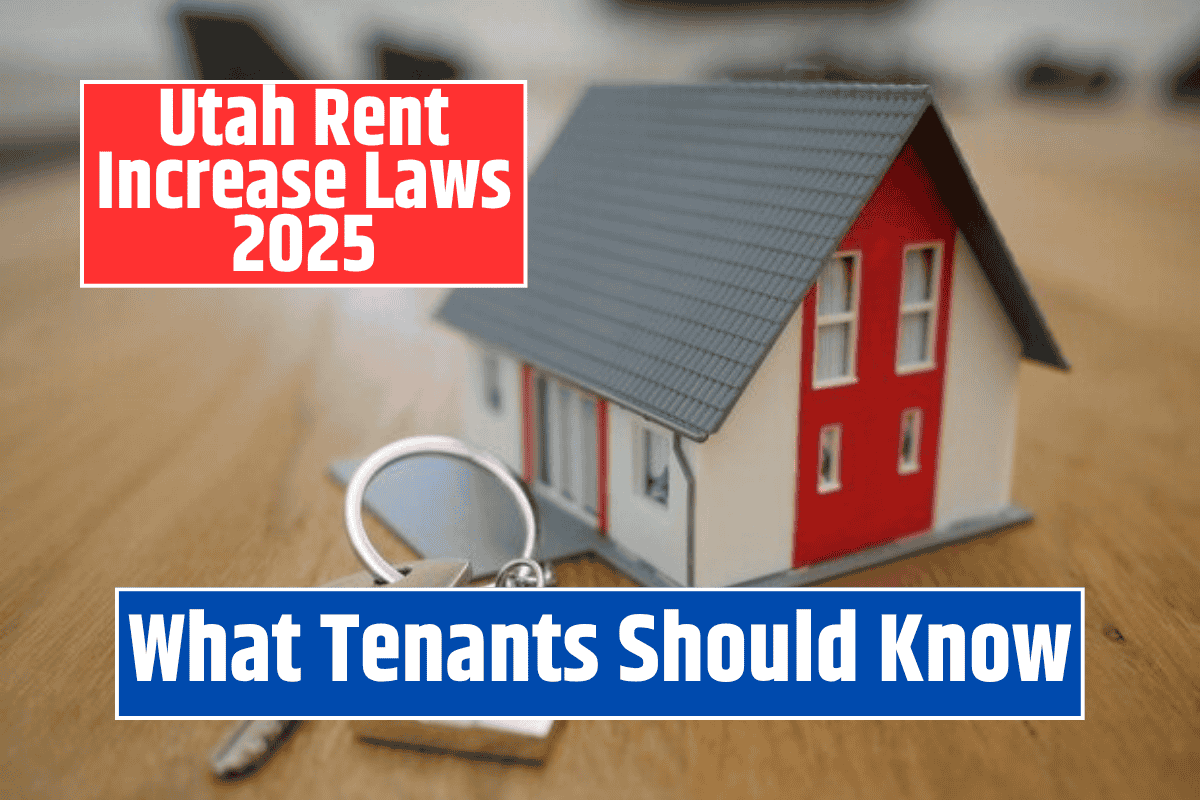Renting a home in Utah? If you’re worried about sudden rent hikes, you’re not alone. In 2025, Utah remains one of the most landlord-friendly states in the U.S., meaning there are no rent control laws to limit how much your landlord can increase your rent.
Whether you’re already renting or planning to sign a lease, it’s important to know your rights and what to expect when it comes to rent increases. This article breaks down Utah’s rent laws in simple terms, so you can make better housing decisions.
Does Utah Have Rent Control?
No, Utah does not have any rent control laws. This means landlords can increase rent by any amount once your lease ends. Unlike places like California or New York, there are no limits on how much or how often rent can go up.
Cities and counties in Utah also cannot pass their own rent control laws, since state law prohibits local rent regulations.
What Is Rent Control?
Rent control refers to laws that limit how much landlords can raise rent each year, usually to a small percentage like 2% to 5%. This helps tenants avoid sudden, massive rent increases. But in Utah, rent control is completely banned.
How Often Can Landlords Raise Rent in Utah?
Utah does not limit how often rent can be increased. Landlords can legally raise the rent as often as they want—as long as they give proper notice.
In most cases, rent increases happen once or twice a year, but technically, a landlord could raise rent multiple times in a single year. That said, most landlords avoid this because frequent hikes can lead to tenants moving out.
Are There Limits on How Much Rent Can Be Increased?
No. There are no limits. A landlord in Utah can raise your rent by any percentage once your lease ends—whether it’s 10%, 50%, or even more. They are not required to give a reason or explanation.
The only time a landlord cannot raise the rent is during an active lease, unless your contract allows it.
Notice Period for Rent Increases
If you’re on a month-to-month lease, your landlord must give you 30 days’ written notice before raising the rent. Here are the rules:
Must be in writing (verbal notices are not valid)
Must be given at least 30 calendar days in advance
Applies only to periodic leases, like monthly or weekly agreements
For fixed-term leases (like 6 or 12 months), no notice is required if the rent increase takes effect after the lease ends. However, most landlords still give notice out of courtesy.
Can Landlords Raise Rent Mid-Lease?
No, unless your lease specifically says so. If you signed a 12-month lease, your landlord cannot increase the rent during that period—unless there’s a written clause allowing mid-term increases.
Without such a clause, rent remains fixed until the lease expires.
Do Landlords Have to Justify Rent Increases?
Not in Utah. Your landlord is not required to explain or justify any rent increase. They can raise the rent at lease renewal for any reason, including:
Market rates
Increased costs
Desire to earn more profit
There’s no legal requirement to provide proof, documentation, or even a reason. This can make it hard for tenants to negotiate or push back.
What Can Tenants Do About Big Rent Increases?
If your landlord raises the rent by a large amount, your options are limited. You can:
Try to negotiate: Ask for a smaller increase or offer to sign a longer lease.
Move out: If the new rent is too high, you may need to find a more affordable place.
Pay the increase: If moving isn’t possible, some tenants end up paying the higher rent.
Utah law gives very little power to tenants when it comes to rent increases, unless the increase is meant to punish a tenant for filing a complaint. In such cases, it could be considered retaliation, which is illegal.
Basic Tenant Rights in Utah
While rent control doesn’t exist, Utah renters still have rights under state and federal law. Some of the key protections include:
Safe and habitable housing: Landlords must keep rental units in livable condition.
Fair housing: Discrimination based on race, religion, disability, or family status is illegal.
Proper eviction process: Landlords must follow the legal process to evict tenants.
Right to privacy: Landlords must give at least 24 hours’ notice before entering (except in emergencies).
Security deposit rules: Usually capped at one month’s rent and must be returned within 30 days.
Repair requirements: Urgent repairs must be addressed within 3 days.
Is Rent Control Coming to Utah?
So far, all efforts to pass rent control laws in Utah have failed. In 2019, a bill was introduced to allow cities like Salt Lake City to create their own rent control rules—but it didn’t pass.
Tenant groups and housing activists continue to push for:
Caps on yearly rent increases
Relocation help for tenants facing eviction
Just-cause eviction laws
But with strong opposition from landlords and property developers, Utah’s rent laws are unlikely to change soon. For now, the state remains very landlord-friendly.
In 2025, Utah has no rent control laws, which means landlords can raise your rent as much and as often as they want—as long as they follow notice rules. While tenants still have basic legal protections, they don’t have much power to stop rising rents.
If you’re renting in Utah, it’s important to understand your lease, plan ahead for potential increases, and know your rights as a tenant.












